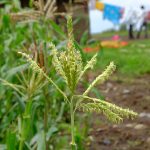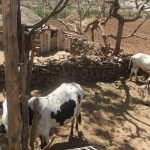Nutritious foods are unaffordable to the majority of households in lower-income countries. Hence, starchy staples tend to be the main source of diets for men, women, and children, implying poor diet quality and deficiency in key nutrients that are crucial for child’s physical growth and cognitive development. Much of existing studies on child linear growth […]
2022 Social Accounting Matrix for Ethiopia: A Nexus Project SAM
The 2022 Ethiopia Social Accounting Matrix (SAM) follows IFPRI's Standard Nexus SAM approach, by focusing on consistency, comparability, and transparency of data. The Nexus SAMs available on IFPRI's website separates domestic production into 42 activities. Factors are disaggregated into labor, agricultural land, and capital, with labor further disaggregated across three education-based categories. The household account […]
Toward integrated dam assessment: Evaluating multi-dimensional impacts of the Grand Ethiopian Renaissance Dam on Sudan
The Grand Ethiopian Renaissance Dam (GERD) on the Nile is expected to influence many ecosystem services, such as flood regulation, hydro-electricity production, food supply, and habitat provision, among others. Understanding these impacts (positive and negative) requires a comprehensive evaluation framework. This study develops and applies an integrated simulation framework for assessing the impacts of the […]
PSNP and sustainable land management in Ethiopia: A formative qualitative investigation
The Productive Safety Net Program (PSNP) is Ethiopia’s national safety net program, launched in 2005 and currently in its fifth phase. The objective of the PSNP is to protect households’ food consumption and assets, reduce their vulnerability to shocks, and address underlying causes of extreme poverty (MoA FSCD 2020). Households who have an adult available […]
Monitoring the cost and affordability of a healthy diet within Countries: Building systems in Ethiopia, Ghana, Malawi, Nigeria, Pakistan, Tanzania, and Viet Nam
Background Governments around the world collect food price data on a frequent basis, often monthly, for the purpose of monitoring inflation. These routine economic data can be used with a nutrition-sensitive lens for understanding economic access to a healthy diet. The United Nations Food and Agriculture Organization has adopted the cost and affordability of a […]
- « Previous Page
- 1
- …
- 18
- 19
- 20
- 21
- 22
- …
- 123
- Next Page »




